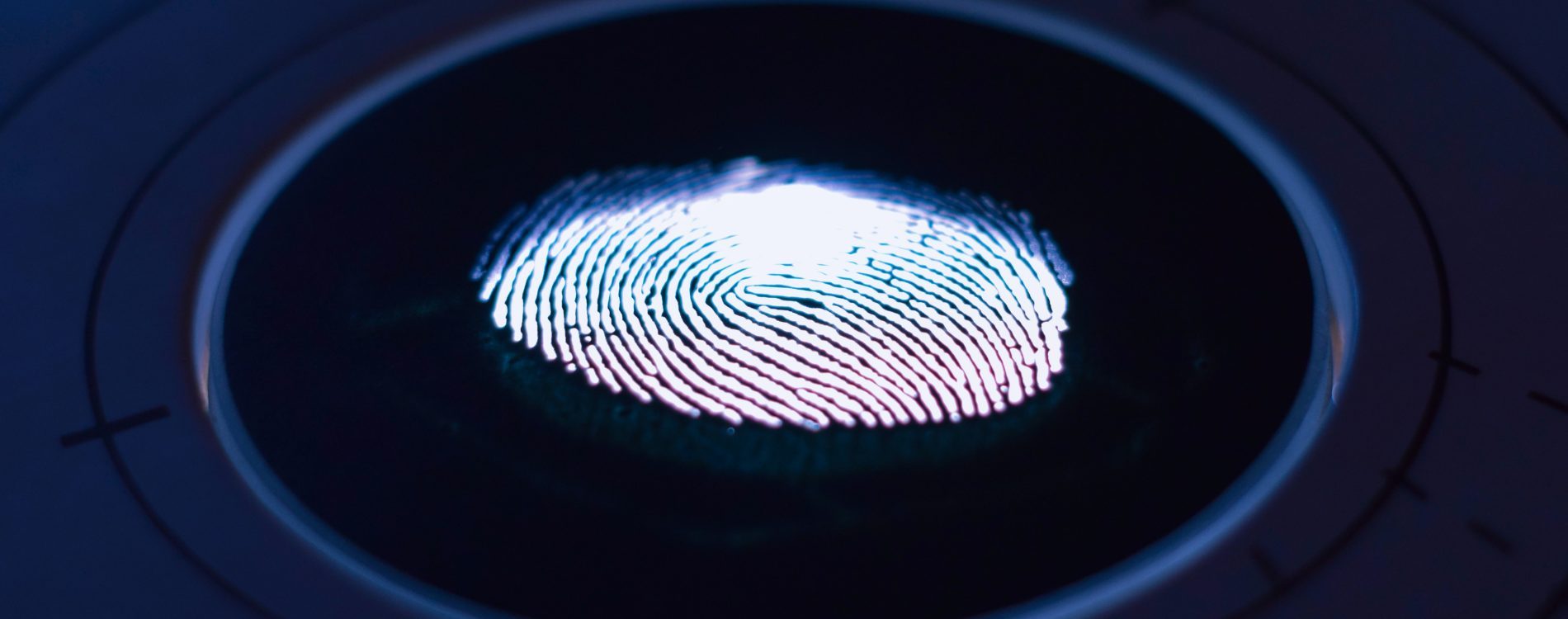Cancer is a complicated and pervasive disease, and it continues to be a huge and serious challenge for the whole society. Its early detection is crucial for effective treatment and improving patient outcomes.

In this process of finding adequate healthcare against this disease, innovative technologies such as artificial intelligence are gaining momentum in transforming and improving upon cancer diagnostics.
Fingerprint Diagnostics: How to detect cancer early with the help of artificial intelligence?

Fingerprint Diagnostics is a research center founded this year in Skopje. The center is actively engaged in the development of a revolutionary blood-based DNA methylation test, utilizing the cutting-edge advances in DNA methylation testing and artificial intelligence classification. This innovative approach promises early cancer detection, marking a significant step towards more proactive and personalized healthcare solutions.
The Fingerprint Diagnostics team is composed of three Macedonian doctors:
- Dr. Goran Kungulovski, genomic scientist,
- Prof. Dr. Gjorgi Madzarov, data scientist
- Dr. Ivan Kungulovski, microbiology scientist

According to World Cancer Research Fund International statistics, the highest cancer rate for men and women combined is in Denmark, with 334.9 people per 100,000.
The age-standardized rate exceeded 300 per 100,000 in ten countries, including Denmark, Ireland, Belgium, Hungary, France, the Netherlands, Australia, Norway, France (New Caledonia) and Slovenia.
Among men, Hungary ranks first with the highest cancer rate of 371 per 100,000, while at least 350 per 100,000 is seen in eight countries, including Hungary, Latvia, France, Lithuania, Slovakia, Slovenia, Estonia and Ireland. Among women, Denmark registered the highest cancer rate with 328.3 women per 100,000, and at least 300 per 100,000 in Denmark, Belgium, Ireland and the Netherlands.
We did an interview with the co-founder and CEO of Fingerprint Diagnostics, Dr. Goran Kungulovski. We talked about the center, what they do and about some of the the challenges this startup faces.

In a nutshell, what is Fingerprint Diagnostics and who is behind this startup?
“Fingerprint Diagnostics is a company whose primary focus is the early detection of disease and thereby minimizing human suffering. We decided to start with the range of diseases called cancer, which will affect one in two men and one in three women during their lifetime.
The team consists of Dr. Goran Kungulovski, prof. Dr. Gjorgi Madzharov and Dr. Ivan Kungulovski, a balanced mix of experienced scientists and entrepreneurs who have made significant scientific contributions in the fields of personalized genetics, epigenetics, machine learning and artificial intelligence and microbiology, but have also collaborated with hospitals, European governments, NATO, European universities, corporations and IT companies.”
What is the primary goal of your research startup’s work in developing a blood-based DNA methylation test for early cancer detection?
“As alluded to in your question, the purpose of the test is the early detection of cancer through the simultaneous analysis of millions of DNA methylation markers in the blood. Or in other words, one and only blood test to detect the majority of types of cancer simultaneously.
Current medicine generally deals well with tumors that are localized and at an early stage – there the percentage of average survival is about 90%. But when the tumor is detected at an advanced stage, when it has already had a chance to disseminate and spread (metastasize) through other organs in the body, then the average percentage of survival drops to about 20%. This tells us that we currently have therapies and medical approaches that successfully deal with cancer, but only in an early and localized form. This is a motivation for us, because it indicates that with better tests and approaches for early detection of cancer, significant steps can be taken in the fight against it.
We know from indications in the scientific literature that with earlier detection of cancer, the positive outcomes of the disease can be significantly increased, reducing the average mortality by an additional 20-25%. But early detection is also important for health systems, because the treatment of cancer at an early stage is 2-7 times cheaper than the treatment of cancer at a later stage. Which means the motivation for early cancer detection is multifaceted.”
How does Fingerprint Diagnostics incorporate artificial intelligence (AI) into data classification and analysis? What tools and methods do you use to train the models?
“We use several different techniques, all with the aim of improving the understanding and interpretation of the final decisions. Data normalization techniques and feature extraction techniques are used. We use unsupervised learning (clustering) to identify regions that show functional similarity and multi-modal fusion of genetic and epigenetic factors. Within the representation of the DNA profile, a transformer architecture inspired by large language models is used. After obtaining the final representation of the methylation and DNA profiles we use a multilayer neural network with an appropriate classification architecture. Techniques based on local models and game theory are used to interpret the obtained results and determine the significance of the features. And, of course, a million experiments, visualizations and tweaks.”

Can you explain the potential advantages of a blood-based DNA methylation test compared to traditional cancer detection methods? Also how is the test used?
“Currently, modern medicine has strictly defined recommendations and guidelines for screening only five types of cancer, namely breast cancer, prostate cancer, uterine cancer, colon cancer and lung cancer in heavy smokers. These cancers are responsible for only 30% of all cancer deaths, while for the cancers that cause the remaining 70% of deaths, there are no defined guidelines and recommendations.
Even the established screening tests for these five types of cancer are riddled with many deficiencies in specificity and sensitivity that consequently lead to a significant number of false positive findings. The so-called tumor markers that are known to citizens are highly non-specific (they cannot easily distinguish between tumors), are insensitive (need a large amount of tumor cells to detect a tumor) and are therefore generally used for monitoring therapy and treatment in already diagnosed patients, not for screening.
A single but robust test for detecting the majority of cancer types can address and solve all these problems.
An additional advantage of this type of tests is that they are minimally invasive, that is, it is necessary to take only a few milliliters of blood, and in a few weeks the patient receives a result that tells whether a signal of cancer has been detected or not. If the result is YES, then it tells with high precision from which organ that cancer signal originates.”

What stage is your research in regarding the development of this test at and have there been any notable achievements or milestones reached so far?
“Our research is currently in the phase of confirmed and proven concept (proof of principle). Namely, the technology has been developed and confirmed with excellent sensitivity (80-98%) and specificity (98-99%) by using publicly available data from worldwide databases, i.e. methylation datasets taken from tissue samples (biopsies) of thousands of patients with 15 types of cancer and blood samples taken from hundreds of patients with 3 types of cancer. The next stage is obtaining the MVP (minimally viable product) which can be certified and implemented. For that we need to repeat everything we have done so far through our clinical study.”
How long did it take you to develop the test and the assistive technology?
“Developing the concept took 10 years of preparation, following the latest technologies and reading scientific literature. After all these preparations, we started the research in the first quarter of 2022 and it took us about 18 months to come up with the initial results and scientific proof of concept. Our estimates are that if we get adequate funding, we can develop a certified product in the next 2 years. The product will detect 3-5 types of cancer. In the next 4 years, the product will detect 50 types of cancer. If our plans are realized, we hope that our test will become part of routine healthcare in Europe and the world in the next 5-7 years.”
How do you foresee the future of DNA methylation tests and artificial intelligence in cancer diagnosis and treatment?
“Artificial intelligence is slowly but deservedly penetrating through all the fields in medicine. AI-based medicine trained on clean and precise data will not only be far more accurate than the current one, but will also reduce the burden on medical professionals in making difficult decisions. From the point of view of early cancer detection, it is certain that these types of blood-based detection tests, initially based on DNA methylation, and further based on multidimensional data (eg DNA methylation plus something else) will become part of standard and routine medicine in the next 5-10 years. We want to be part of that story.”

Are you looking for investments, do you have investments? What’s Next for Fingerprint Diagnostics?
“So far, the Fingerprint Diagnostics team has invested tens of thousands of euros in personal financial and work resources. We are currently looking for an investment of at least 1 million euros or corporate partners to realize the first phase of development, i.e. organizing a clinical study, obtaining a certified test for 3-5 types of cancer and piloting the test with a visionary government. An investment of tens of millions of euros will be required for the second phase of development in which a test will be developed for the simultaneous detection of 50 types of cancer. The Fingerprint Diagnostics team is in daily communication, contact and negotiation with venture capital investment funds and associations. Individuals and legal entities interested in investing can contact us at [email protected].”
How much does Elizabeth Holmes / Theranos’ multi-million fraud with their blood test make it harder for you to be accepted by investors and partners? How do you distance yourself from such associations?
“Elizabeth Holmes’ billionaire fraud through Theranos is not a topic of conversation at all and has no effect on our negotiations with potential investors due to several factors. First, our platform is based on the application and combination of already established scientific-technological approaches and ways of taking material (eg blood). Second, the wider scientific and technological community knows that the world is ready not only for the development but also for the application of this technology. Many people are trying and many people and companies have already succeeded or will succeed in developing and applying such technology in their geographical regions of operation. Third, Elizabeth Holmes when she started Theranos was a young teenager who had many dreams, good persuasive skills but a low level of expertise in the field in which she wanted to operate. Our team is comprised of proven professionals in their fields who have a history of building high-throughput testing and research facilities.”
Since OpenAI’s ChatGPT went live late last year, AI has become a hot topic of discussion. How much AI can speed up work, how many people could lose their jobs because of AI, whether it will have a positive or negative effect on our lives and many other related questions have become part of our everyday lives. But what is possible and achievable if artificial intelligence is used in the right way, we probably don’t know yet :)
Finally, let’s congratulate Fingerprint Diagnostics for what they have accomplished so far, as well as wish them luck for the next challenges. We will be here to report on their next achievements.













